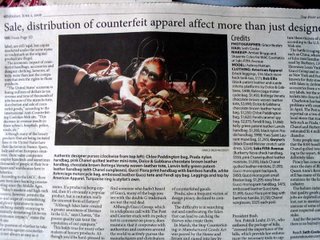
Well, i'm writing this from the back porch here in Charleston. That's something i hope i won't have to be mentioning for a while. There's two reasons for that--one good, one not so good: the first reason--the good reason--i won't have to be saying it is because, by golly, i've moved back home.
Thank goodness. I've been gone from home for almost all of 3 years. Before that, i was gone for a lot of the three years it took me to finish undergraduate work, and before that i was gone a lot of the time playing music. Alison and i recently celebrated a seventh wedding aniversary, (and have been together for almost fifteen years) but it's really a sham--we don't know what it's like to actually live together.
The bad reason i won't be mentioning writing on the back porch is that i figure here pretty soon it'll be too balmy--even in the mornings. Currently we still haven't given in to running the air conditioner, but that won't last much longer. This morning's air, even at 7:30 am, is wetish and warm. It makes me want to go wash my hands.
Alright. Today's title is lifted from the Post and Courier in an article about fake designer goods. Robert Chavez, the CEO of fancy handbag company Hermes, says that "although fakes have created a greater awareness of Hermes in the U.S., the poorer quality can taint the reputation of our company."
Just like the porch, i have two reasons i was drawn to writing about this: first reason: "taint" is now a funny word. i just had to snicker when i read it. I will never hear the word "taint" again without thinking of the 5 inch taint skit from Mr. Show. The second reason is because the article is dealing with something near and dear to my heart---craftspersonship. (an unwieldly term, i know, but at least gender neutral.)
The article is talking about the damage done by counterfeit Gucci and Hermes and so forth stuff. Now, without really getting into the odd world of how a money value actually gets attached to a product (and the price for "style" as opposed to quality or actual need) i want to point out something the article brings up.
Hermes evidently has strict quality control. They search the world for the right leather. They reject anything with flaws in it. They employ only the best artisans (i'm a little skeptical of that part.) They report that it takes an artisan 24 hours (!) to complete one of their signature Birkin handbags.
Alright. Part of my art is furniture making, right? If i'm making a really nice piece of furniture (again with the caveat that i'm not dealing with the style vs. quality thing) i too search for the correct pieces of wood. I reject anything with flaws in it. I am a properly trained artisan. It may take me...matter of fact, i won't even talk about me. Let me mention Greg Smith, the best woodworker i've ever met. It took Greg three months to design and build a one of a kind, free standing jewelry cabinet out of a pristine piece of European Pearwood. His price? I think it sold for around $9,000. He took 50% of that home after the gallery commission. The price for that 24 hour Hermes handbag? $7,200. Something's a little silly there. (i think $9,000 for a cabinet is silly, but a freaking handbag? Come on, man.)
Now. On to the next thing. The article is talking about the damage done to these companies asking $7,200 for a handbag by the knockoff folks. It reports that the House and Senate recently signed into law the Stop Counterfeiting in Manufacturing Goods Act. Chavez and the writer of the article maintain that "copyright infringement is bad. We've all been told that it's not right to take credit for other people's ideas, and that stealing in punishable by law." That "today's luxury labels spend a considerable amount of time and money protecting their intellectual property rights, products and trademarks."
Well, being in the career path i've been in--particularly the crafty end of fine arts--i know quite a few folks that design highend products, either as their own work or for one of those big companies. One person, who worked for one of the big names actually mentioned in this morning's article, told me it was her job to go to one-of-a-kind galleries where artisans show their work and buy things that she found particularly attractive. She then took them back to board meetings where that company would then decide whether they wanted to create their own line using that artisan's contribution to the medium.
So, i the case of a glassblower for instance, Joe the glass guy may have labored for years to create a method of producing a certain individual touch in his flower vases. Big Company simply has to go shopping to find it, figure out how to do it, and then make a thousand copies. So much for "taking credit for other people's ideas," huh?
More to the point, i know a furniture maker that was approached by another Big Company and was asked to license (for a very small sum of money and no recognition) his particular design touch. He said, "no, i don't think so." Big Company representative then told him "well, you can license it to me, or i can just buy it, have it copied, and not give you anything at all." Kudos for the honesty, but gee whiz. What choice did the guy have?
Lastly, the article goes on to say that these knockoffs hurts the job market and the American Economy and blahblahblahwahwahwah. It also points out that "although it may seem as though you're getting the same product for a lot less [per the designer knockoff], the differences add up. You may think that the high end price of the real thing means you're paying for the label, but most of the time, the price reflects the time and work put into the product."
Well, let's get something straight: You Are Paying for the Label. And you're paying for the newspaper that reports that crap in an article that details the cost of these bags along with a photo of them and a masked woman and the information as to where to get them in Charleston and the fact that "Hermes will open a new 3,000 square foot store...at South Park Mall in Charlotte this fall." That's not news--it's advertisement and it makes up about 70% of Big Company's budget.
If you really wanna help the American Economy, Don't buy this crap. Support a local artisan.
9 years ago


5 comments:
hey! nice to see your face, first of all, but secondly, didn't we watch that "taint" episode together? i have the dvds now and it isn't the same as the one i remember.
oh, and thirdly--i made myself a myspace page. why don't you go be my friend, since it's kinda sad on there where it says "walter biffle has no friends."
it must be weird to finally get to live at your own home after all this time! I don't think I could do that.
nice bloggy. "the man" sucks.
Biffle with a myspace? I must see this!
ahhh. that's so nice. now it says "walter has 1 friends."
I looked for your profile, but I couldn't find it. I'll be your friend.
Post a Comment